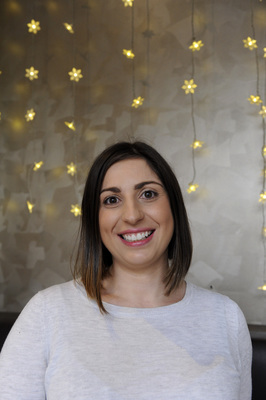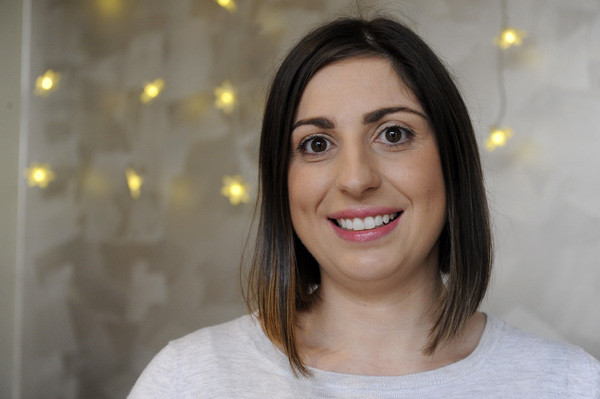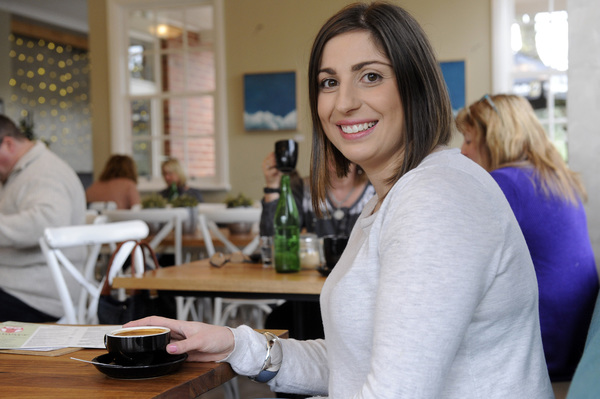By Jade Glen
The impending first birthday of her daughter, Delilah, led City of Casey mum Ani Tuna to reflect on her first year of motherhood.
“Just before her first birthday, my husband and I were sitting in her room and were about to put her to bed. I said to my husband, the fog has cleared, we are nearly there – but this was just so hard. There were so many struggles, particularly in the first six months,” Ani said.
“I realised there was so much support that had been missing. Like most expectant parents we did all the birth classes, and we went to them thinking they would actually prepare us for parenthood, but really all they did was talk about birth and labour and breastfeeding to some degree.
“It seemed like it was just about getting your baby safely out, and then leaving you to work out the rest by yourself.
“The problem was that when the time came to work out the rest for ourselves, we were so exhausted, as you are as a new parent. We were so overwhelmed that all these things that people say – like trust your instincts – we couldn’t do that.
“We had all these questions, and we weren’t getting any answers.”
Ani decided to do something about it, and a couple of weeks later her brainchild MumLife Australia was born.
With goals of creating a national parent-led online resource encompassing babies, toddlers and pre-schoolers, Ani has recruited a tribe of experts in various fields to provide no-nonsense, evidence-based advice to new parents.
Under the MumLife umbrella she has started BeyondBirth, an antenatal class that focuses on newborn care.
“I spoke to as many new parents as I could, to work out whether my experience was unique, or whether this was something that everybody was experiencing. The response I received was overwhelming,” Ani said.
“I just spent months and months talking to people. There is this false belief that if you change a baby’s nappy, burp them and put them back down they’ll just stop crying. The reality is they cry for various reasons and sometimes no reason at all.
“The reality is most newborns can cry for up to three hours a day, and people were completely shocked when they brought them home and they didn’t just sleep all day.”
Ani also spent time speaking to new dads, and found they often felt that they weren’t adequately informed or prepared to help with newborn care.
The concerns of new parents were similar to her own worries in the early days, when she had difficulties establishing breastfeeding and found that Delilah was up all through the night and sleeping through the day.
“For me, expectations were a big thing. I was really just not at all prepared for what it was going to be like,” Ani said.
“These (breastfeeding and sleeping) are common challenges, but no tells you that happens, and you don’t get tips to try and fix it.
“So I would stand in her room at three o’clock in the morning and just look out the window thinking is there anyone else actually awake doing what I’m doing right now. I just felt I couldn’t possibly be the only one experiencing this but I had no idea what to do, so we put up with it. We put up with it for so long.”
Ani’s turning point came when she discovered a girlfriend was feeling the same way.
“For a really long time I was struggling. People would ask and I would say yeah it’s going really well, I’m doing OK, but I was actually crumbling.
“And one day a girlfriend came over and sat on the couch with me and she started to cry, we both ended up crying and I thought wow you’re actually feeling this way too.
“From that moment on I decided I wasn’t going to do it anymore. I wasn’t going to pretend it was like it is on instagram, and when people asked me how I was doing and how motherhood was, I was going to be honest. If they asked me, I would say I love my children but I don’t always love being a mum.
“I guess it’s that whole village thing – you know back in the day you might have lived really close to your parents and seen people bringing up children and that information might have been passed down, and now it’s not passed down. Now we live in this vacuum of social media – not only do we not have support of the village, we don’t even have that perspective of what parenthood actually looks like because all we ever see on our phone is these beautiful photos of babies sleeping, beautiful breastfeeding photos. So we go in top parenthood thinking that’s the reality.”
To combat the glossy veneer of early parenthood, Ani includes a panel of new parents in every BeyondBirth course.
Parents talk about their experiences of parenthood so far and all its challenges.
“Parents talk about the strain on their marriage, how you might have to do things differently to keep the communication open, and the loneliness a lot of mums feel sitting at home. Parents talk honestly and openly so that the women and men in the room have realistic expectations.”
Not long after coming up with MumLife, Ani discovered that she was pregnant again – her second daughter, Frankie, is now one.
“About a month later I found out I was unexpectedly pregnant with Frankie. And I was absolutely terrified. I thought I’ve had such a difficult experience with my first one; the second is going to be the same.
“But you know what to expect, you know where to get help. So I thought how can I give first-time parents this benefit that second-time parents have. You don’t have that same self-doubt, and that’s because you go in with realistic expectations, and skills and knowledge.
“I feel if we have these conversations out in the open, this will help women and men feel confident, both with their skills and resources and also with the realities of parenthood. I think doing that will start this culture of people being more honest and upfront about the challenges of parenthood, which is the change I’m really trying to make.”










